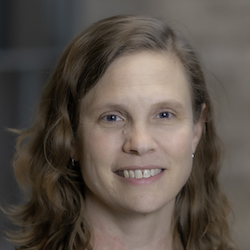Jennifer Dunn Authors Essay in First Edition of New Nature Journal
Dunn’s article was published in the debut of Nature Chemical Engineering
Northwestern Engineering’s Jennifer Dunn has written an essay in the first edition of a new academic journal from Nature.

Dunn, professor of chemical and biological engineering at the McCormick School of Engineering, authored “Systems- And Community-Level Thinking to Address Societal Challenges,” published January 11 as part of a series of commentaries on the field in Nature Chemical Engineering. Also the director of the Center for Engineering Sustainability and Resilience, associate director of the Northwestern-Argonne Institute of Science and Engineering, and faculty affiliate of the Paula M. Trienens Institute for Sustainability and Energy, Dunn’s research evaluates the environmental and societal effects of emerging technologies including energy storage, hydrogen, sustainable polymers, and critical mineral extraction.
In the article, Dunn outlines the value of chemical engineering as a discipline, arguing that it “holds the keys to unlocking a society that regenerates rather than degrades the environment,” even though the field has also helped create materials that degrade the planet, such as plastics, and technologies that power the oil and gas industry. However, Dunn argues that chemical engineers are key to fixing these issues.
“Chemical engineering is unique in its systems thinking approach to solving these challenges,” Dunn wrote. “Chemical engineering college students explore process design trade-offs and learn that every choice launches ripple effects with advantages and drawbacks. Over their careers, chemical engineers continue to grapple with trade-offs, making design decisions often without complete information.”
To guide research in the right direction, Dunn writes that chemical engineers are equipped to apply the correct tools to product development, including techno-economic analysis and life cycle analysis. Further, Dunn called on engineers to use these methods to ensure that the environment benefits from novel breakthroughs, and also improve the analyses themselves.
The field, Dunn said, should prioritize technologies with the most potential for positive impact and engage with communities where new tools could be used.
“Proactive action on the concerns communities express can increase their safety, health, and quality of life,” Dunn said. “Community engagement and systems-level thinking are fundamental to our discipline’s central role in moving towards energy, materials, and chemical systems that are regenerative rather than detrimental to the environment and society.”